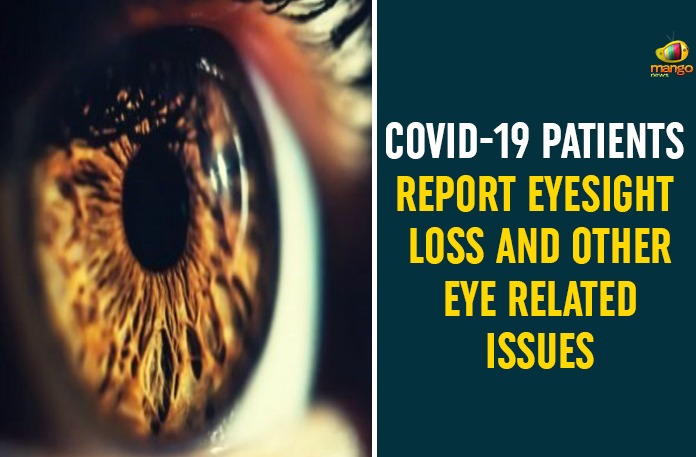Recently in Bengaluru, a Novel Coronavirus or COVID-19 recovered patient lost his vision.
According to the hospital authority, a COVID-19 patient during his treatment lost the ability to see.
This is the second such case, where a COVID-19 patient turned blind during or after treatment.
One such case was reported in Surat, Gujarat.
Dr. Jagdish Hiremath, the Chief Executive Officer (CEO) of Ace Suhas Hospital, Bengaluru, said, “He (the patient) started recovering in a couple of days with treatment.
However, on the third day he complained of a severe headache which was treated symptomatically. The next day he had a blurring of vision in the right eye. Diagnosed glaucoma! Retinal artery occlusion and glaucoma are rare complications of COVID-19. These happen due to the vasculitis associated with it. If undetected or unattended it will lead to blindness.”
Mr. Hiremath spoke about such cases and said, “We have seen both of these in 2 different patients who got admitted with us for COVID-19 treatment. The virus is behaving differently in some of the cases and a profound clinical trial should establish the correlation between the cases and the COVID-19. Also there have been instances in Gujarat where over 40 patients have complained about blurring of vision and blindness.”
Soon after complaining about blurry vision, the patient was referred to the Victoria Hospital’s Ophthalmology department.
Dr. Ashwin Santosh Shetty, a consultant of ophthalmology said though there has been a lot of news going around about the complications of retinal artery occlusion being caused by COVID-19, there is not enough data and research on these complications.
Dr. Shetty said, “These are rare conditions and are not exclusive to COVID-19 infection. There are multiple factors which can lead to such conditions such as uncontrolled diabetes and hypertension. As diabetic and hypertensive patients are already vulnerable to complications of COVID-19 infection, they may face such issues as the virus has been found to trigger any underlying conditions.”
In order to avoid occlusion, especially in COVID-19 patients, Dr. Shetty suggested controlling sugar levels and keeping check with proper medicine, diet and exercise.
Occlusion is a rare situation in COVID-19 patients, but it could also happen to non COVID-19 patients who are diabetic.
In addition to this, the World Health Organization (WHO) and many health experts across the world confirmed the effect of COVID-19 on the eyes. Many people across Europe and the United States of America reported eye related issues after being diagnosed with the Novel Coronavirus.
Stay tuned for further updates.
Subscribe to our email newsletter to get the latest posts delivered right to your email.


Comments